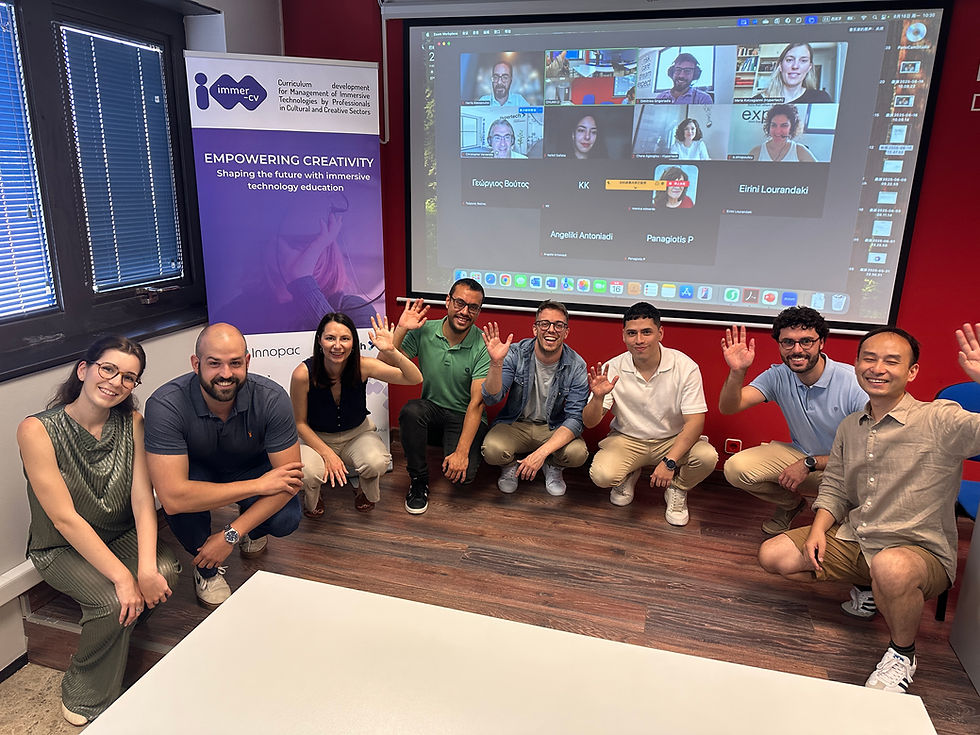Breaking Language Barriers: The Need for Cross-Cultural and Cross-Language Debate in European Democracy
- IDEAL

- Jan 30, 2025
- 3 min read
In a Europe defined by its rich cultural and linguistic diversity, democracy must be as inclusive as its people. With 24 official languages and over 200 spoken across the continent, ensuring equal participation in political debates remains one of the greatest challenges for democratic institutions. If language is the key to understanding, how can we create a truly representative democracy when so many voices remain unheard due to linguistic barriers?

The need for cross-cultural and cross-language debate in national and European democracy has never been more urgent. As societies grow more interconnected, policy decisions no longer affect just one country or one language group—they shape the future of an entire continent. However, unless we address the barriers preventing multilingual engagement, we risk leaving millions of citizens out of the democratic process.
Why Language Matters in Democracy
At its core, democracy is about dialogue—the exchange of ideas, perspectives, and solutions. But when debates are conducted in a single dominant language, those who do not speak it fluently may struggle to engage. This leads to:
Exclusion of Minority Voices – Migrants, regional language speakers, and non-native speakers are often sidelined in political discussions, despite being directly affected by policies.
Policy Decisions That Lack Diverse Perspectives – Without multilingual participation, policies risk being shaped by a narrow subset of society, failing to reflect the full spectrum of experiences and needs.
Decreased Public Trust in Institutions – When people feel unheard or unable to participate due to language constraints, it erodes confidence in democratic processes.
In an increasingly diverse Europe, linguistic accessibility is not a luxury, rather it is a necessity for legitimacy and trust in democracy.
The Role of Technology in Bridging the Gap
The good news is that advancements in AI-powered translation, real-time speech recognition, and multilingual deliberation platforms are revolutionising how we engage in democracy. Innovative solutions, such as AI-assisted debates, automatic transcription, and crowdsourced policymaking tools, are making it possible for citizens to participate in discussions in their native languages, without losing meaning in translation.
Projects like IDEAL (Inclusive Democratic Engagement through AI & Language Technologies) are leading the charge, integrating machine translation, multilingual discussion platforms, and AI-driven text simplification to foster inclusive democratic engagement. By using these technologies, we can create a political environment where every citizen, regardless of their linguistic background, can actively shape policies that impact their lives.
Beyond Language: Embracing Cross-Cultural Dialogue
While breaking language barriers is crucial, democracy is not just about understanding words—it’s about understanding perspectives. Different cultures bring different ways of thinking, debating, and approaching solutions. Cross-cultural dialogue enriches democracy by introducing alternative viewpoints, fostering empathy, and ensuring policies are designed for diverse realities.
Imagine a policymaking process where:
✔ A migrant worker in Spain can contribute ideas on labour rights in their native language.
✔ A rural farmer in Poland can discuss agricultural policies with urban entrepreneurs in France.
✔ A young climate activist from Sweden can debate environmental legislation with policymakers in Greece—without language standing in the way.
This level of democratic inclusivity is not just an ideal—it is possible, and necessary.
The Way Forward: Making Democracy Multilingual and Inclusive
For democracy to truly work in a multilingual, multicultural Europe, we need:
✅ Government institutions to prioritize multilingual accessibility – Public consultations, parliamentary debates, and official documents should be available in multiple languages to ensure broad participation.
✅ Investment in AI-driven language technologies – Continued development of real-time translation, speech recognition, and multilingual deliberation tools can help bridge the gap.
✅ Inclusive civic engagement platforms – Digital tools, and AI-supported forums can facilitate deliberation across linguistic and cultural lines.
✅ Education and awareness on cultural diversity – Training policymakers and institutions on how to navigate cross-cultural discussions fosters more effective and inclusive debates.
The Future: A Democracy Without Borders
Europe’s strength lies in its diversity. To build a truly representative democracy, we must embrace linguistic and cultural plurality as an asset, not a challenge. By investing in multilingual deliberation tools and fostering cross-cultural dialogue, we can ensure that democracy reflects the voices of all its citizens—no matter what language they speak.
It’s time to redefine democracy beyond borders—one where participation isn’t determined by language but by the power of ideas, collaboration, and shared decision-making.
👉 What are your thoughts on multilingual democracy? Subscribe for updates and opportunities using the form in our footer.
.png)



Comments